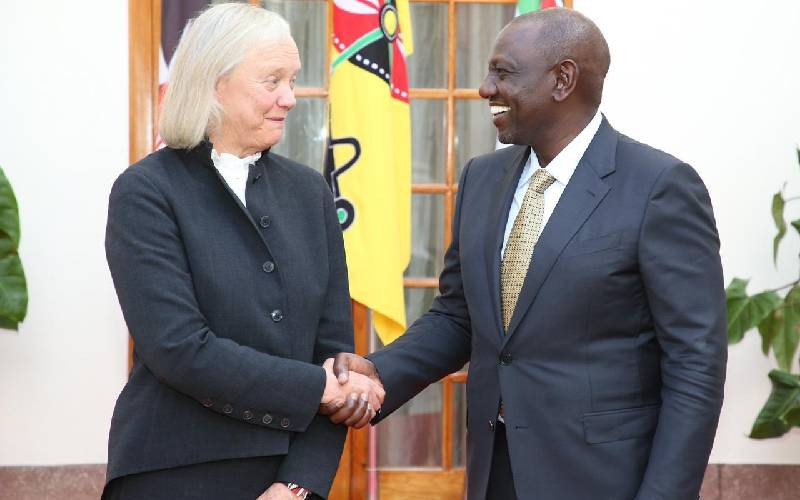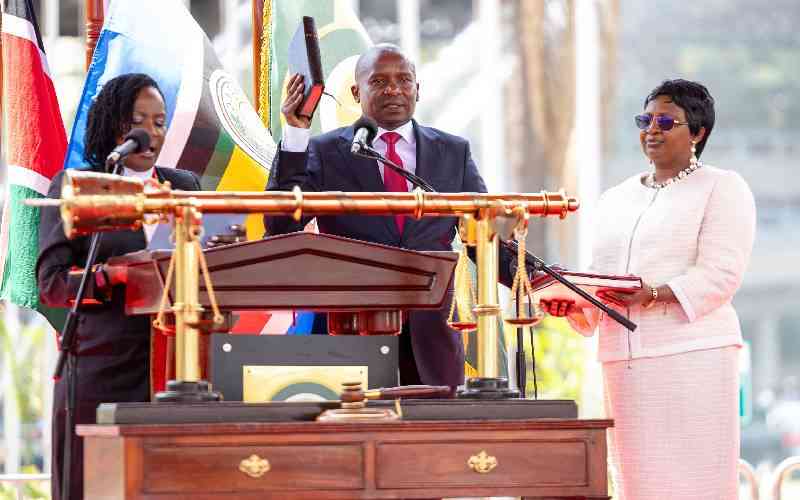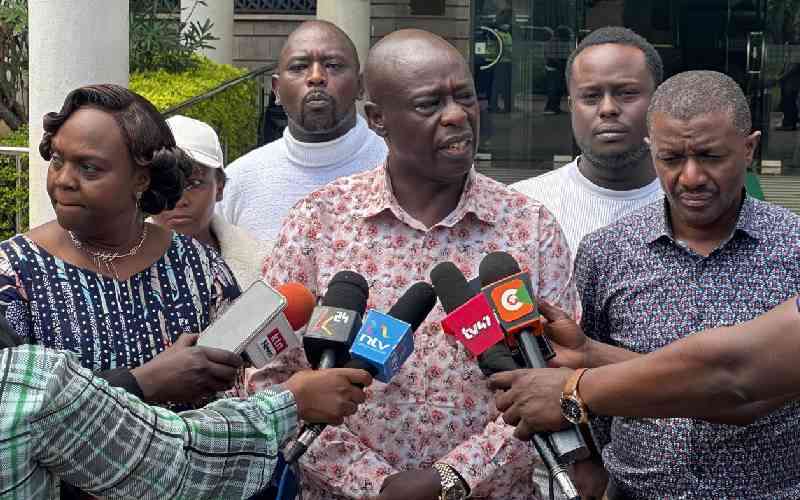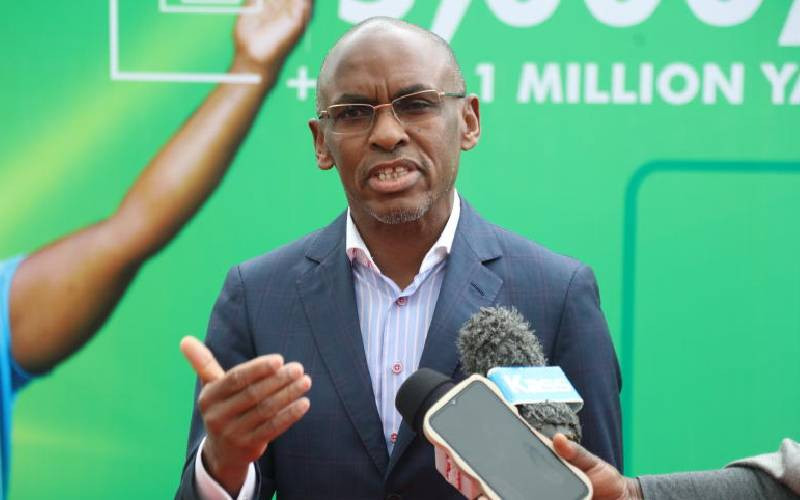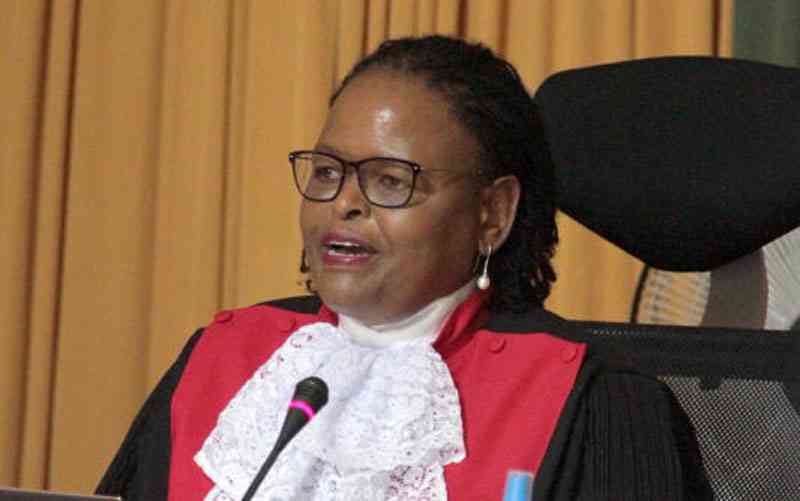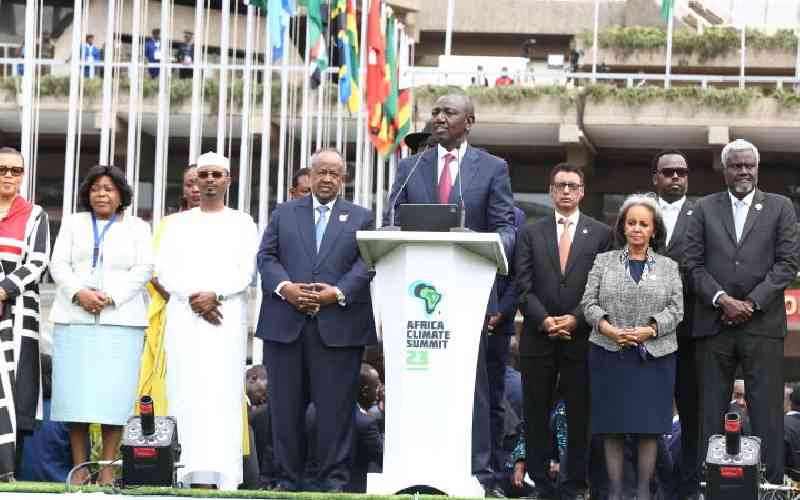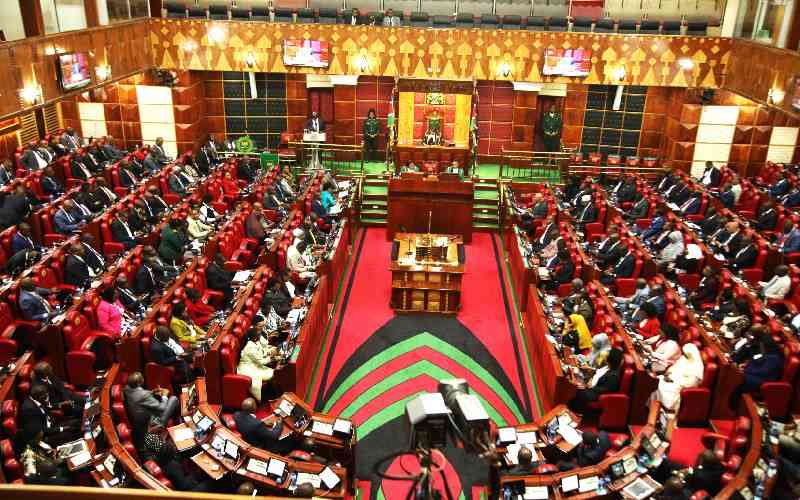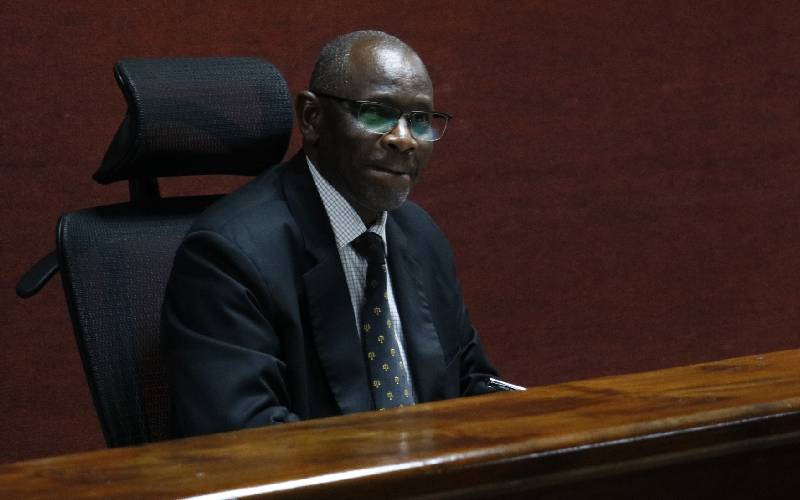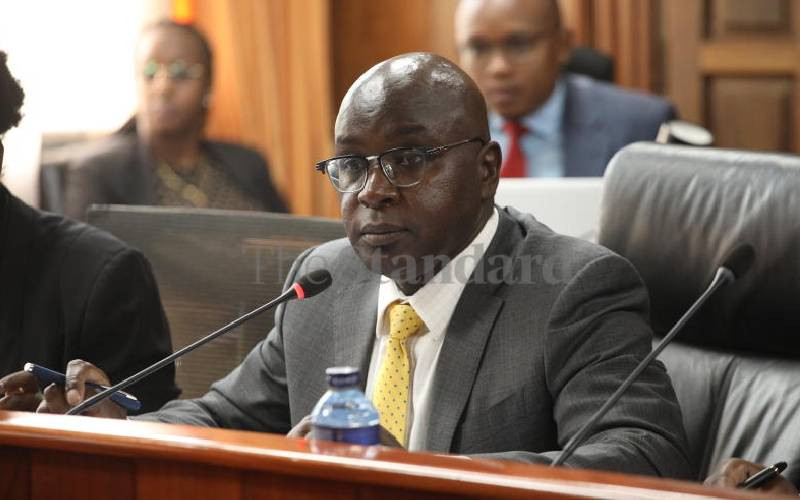
If there were comic competitions for public administration, I can bet this country could win all the gold medals on offer.
For anyone who is familiar with provisions of Chapter 12 of the Constitution, the accompanying Public Fianncial Management Act of 2012 and the Public Financial Management Regulations of 2015, then the events of this past week sound like a movie cast from hell.
The revelations by the Controller of Budget (CoB) on the events that preceded an approval of at least Sh15 billion days to the last General Election are nauseating.
To make matters worse, these were originated from the highest institution and executed under the instruction of the State officer conferred the highest authority over public coffers.
Privileged status
The Constitution confers privileged powers and responsibilities to the institution of the National Treasury and the Cabinet Secretary responsible for it. In the counties, the county Treasury and the County Executive Committee Member responsible for it enjoy the same powers in the devolved units.
Probably drawing lessons from the excesses of the one-party rule, the Goldenberg and Anglo-leasing scandals, the drafters of the Constitution abolished the once powerful Controller and Auditor General Position and replaced it with two independent constitutional offices.
These are the Controller of Budget (Article 228) and the Auditor General (Article 229). By design, the two offices work directly for the electorate and report to them through their elected representatives.
The CoB has the sole responsibility to approve any monies from the Consolidated Fund at national level and County Revenue Fund at the devolved units. No public funds may be spent outside these accounts held at the Central Bank unless exclusively authorised as Appropriation in Aid permissible to be spent at source under the PFM Act.
In a way, this provides a check on the potential abuse of the Executive powers of the president and the CS Treasury over public resources. The two offices enjoy constitutional protection and the holders can only be removed under procedures envisioned under the Constitution. This procedure is similar to that of other constitutional commissioners and judges.
Effectively, therefore, a threat from another State Officer including the president himself cannot hold water in relation to the execution of their constitutional mandate and responsibilities to the people of Kenya. More specifically, Article 226(5) assigns individual responsibility to all public officers, including political leaders on their decisions over public resources.
This responsibility extends even after they have vacated that office. They remain accountable for any loss or abuse of public resources during their tenure in office.
It is instructional to remember one of the consolidated cases under the BBI legal battles was specifically on this article. The constitutional courts dropped the petition only on the basis of being premature before an audit report is available of the amount spent in the unconstitutional initiative.
No surprises
Turning our focus to the substantive issues under trial here, you can only be a stranger in our Jerusalem to be surprised by the daring nature of the alleged perpetrators. I am on record previously that there have always been a multi-billion shilling scandals involving high consumer goods or services around every General Election since the introduction of multiparty democracy in 1992.
This is how funds are siphoned from public coffers to finance campaigns for the incumbents or to recover campaign money by the victors. It is without a doubt that the Azimio camp was a well-oiled machine. With the full support of the incumbent then and his loyalists in government having been promised goodies after a win, there cannot be any surprises here.
Since economic systems habour no vacuums, this money was bound to have come from somewhere. This dossier can be related to the huge spike in daily operational costs at State House for the period preceeding the elections, leaked out by Kenya Kwanza insiders shortly after their victory. In the same vein, the victors cannot claim any 'above thou' status on accountability with our public coffers.
I can dare hypothesize here that the opaqueness with which they are handling the emergency relief food programme, the fertiliser subsidy and now the proposed subsidies for petroleum products imports and cooking gas, it can only be a question of when the scandals will erupt for the publics to witness. They all fit in criteria of high consumer goods/services, crisis necessitating emergency spending and the choice of unknown and inexperienced agencies as the primary implementers.
Besides, their campaign was equally well-funded and with the rate at which corruption related cases are collapsing, they can only signify one thing -a big, smelly rat. I could be wrong, but time will tell given our history and past trends. The characters remain the same, only different scenes in the play!
Implications
From a careful reflection on the nasty outbursts playing in the public gallery one thing is clear: the sabotage of the economy is perpetuated in very high offices in government and corporate boardrooms. If there is a supplier, then there must be demand.
The consequences of these economic misdemeanors run across generations. The voters and taxpayers are simply cannon fodder in the economic war between the incumbent government and the opposition.
For instance, if indeed billions of taxpayers' money were lost through these mischevious dealings over the transition period, the profiteers can only have been within the Azimio camp. Technically, therefore, their purported ongoing public protests for fairness, justice and accountability are simply diversionary tactics to cover their dirty dealings. It must never be lost to the public of the bromance between the handshake brothers.
Equally true, the Kenya Kwanza administration has missed no opportunity to make sweeping allegations against their opponents without undertaking any practical steps to bring those they accuse to account within the due process of the law.
Besides, they have never stopped campaigning under the disguse of worship. While they preach water at the pulpit, there is every reason to believe they take wine in the cover of their magnificent offices.
How else can we account for the presidency blowing its entire annual budget in under seven months in the midst of crippling austerity measures for other government agencies? Why hasn't the deputy president's office denied the extravangant cash requisition outside the budget as soon as victory was confirmed for them?
At the devolved units, the county bosses continue to lavish in wanton extravagance while holding hostage the budget process demanding for additional allocations on the equitable share. In the midst of all this, the hoi-polloi are starving to dealth in different corners of the country, their children trapped in an abviously ill thought-out and doomed education system. Woe unto them should sickness catch up with them.
It's for these reasons that I ask, once more, are the real taxpayers the children of a lesser God in this country?
 The Standard Group Plc is a multi-media organization with investments in media platforms spanning newspaper print
operations, television, radio broadcasting, digital and online services. The Standard Group is recognized as a
leading multi-media house in Kenya with a key influence in matters of national and international interest.
The Standard Group Plc is a multi-media organization with investments in media platforms spanning newspaper print
operations, television, radio broadcasting, digital and online services. The Standard Group is recognized as a
leading multi-media house in Kenya with a key influence in matters of national and international interest.

